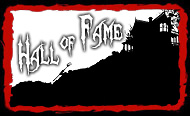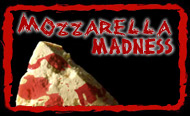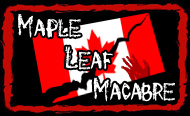
Written by: Scott Alexander, Larry Karaszewski, Matt Greenberg
Directed by: Mikael Håfström
Produced by: Lorenzo di Bonaventura
Reviewed by: J.T. Jeans
This review contains MODERATE SPOILERS for the film 1408.

Mind you, I enjoy a variety of literature spanning many different genres and subject matters, but when I really want to unwind, I retreat to the fanciful, often cerebral machinations of the world's most acclaimed horror author (that's probably hyperbole on my part, but with over 50 best-selling novels under his belt, it's not hard to envision that it might be true).
Given my love for King's written work, it's only natural that I gravitate to the occasional film adaptation. Some of them are pretty good, some not so much. When I found out that the short story 1408 was on the Docket for Adaptation, I was left feeling somewhat dubious. The story -- first released exclusively in an audiobook anthology and later published in Everything's Eventual: 14 Dark Tales -- was a dense little thing, only clocking in at fifty-three and a half pages.

In some ways, I was right -- 1408 the short story probably would have been adapted more faithfully in short-form. But I was wrong to think that adapting the story in long-form wasn't possible. I'm always happy to be proven wrong when it comes to Stephen King adaptations.
1408 tells the story of Mike Enslin (John Cusack), an introverted author and jaded skeptic who travels the country visiting supposedly haunted locations and writing about them in a series of themed novels including, but not limited to, 10 Haunted Graveyards, 10 Haunted Lighthouses, et cetera and ad nauseam. Whilst researching his newest book -- the cleverly titled 10 Haunted Hotels -- Enslin receives an anonymous postcard warning him away from the Dolphin Hotel, specifically room 1408.

Enslin arrives at the Dolphin and has an extended conversation with the hotel's manage, Gerald Olin (Samuel L. Jackson), during which Enslin learns that there have been a number of undocumented deaths in 1408. As well as a string of suicides, there have been numerous natural and accidental deaths that range from heart attacks to people drowning in their dinner. Olin relates to Enslin the staff's refusal to enter 1408 alone, as well as a story about a young employee who went blind after spending less than a minute locked in the suite's bathroom.
Undeterred by the revelation of these rather startling new facts, Enslin enters 1408, determined to expose the room's reputation as just another in a long line of staff-perpetuated ghost stories. What he finds takes him to the very edge of insanity and unburies the specter of a life he thought he'd left behind.

Håfström found the perfect Enslin in John Cusack, and while Jackson's casting as Gerald Olin was inspired (the character as seen in the short story is a short, fat, middle-aged white man), the film really is Cusack's vehicle. With a less competent actor in the driver's seat, 1408 could have easily been a bloody car wreck. While the other cast members dip in and out of the film on occasion, the bulk of the film is pretty much Cusack going out of his mind as the hotel room from hell plays various head games with him. Watching a skeptical Enslin unwind into a sobbing, beaten wreck is an intense experience.
As I said near the beginning of the review, it was pretty much a foregone conclusion that the short story would have to be padded in order to meet feature-length requirements. The additions made to the story by Alexander, Karaszewski and Greenberg are a bit of a mixed bag, but for the most part they work.

On the flip side, the third act is dragged down considerably by an elongated sequence in which Enslin believes he has escaped 1408. I wouldn't even mention this sequence in the review because some might consider it too spoilery, but anyone who sees the film and doesn't realize right off the bat that Enslin is really still trapped in the room simply isn't paying attention.
The problem isn't so much that they fall back on a fairly old narrative trick, it's that it goes on and on and on. While watching the Theatrical Cut for the second time, I thought that Håfström should have probably trimmed about three or five minutes out of the sequence, so imagine my surprise when I saw the Director's Cut and realized that the sequence actually is trimmed (although in fairness the extra footage is actually pretty good).

In terms of carnage, there's very little of the wet stuff on display, although there are a couple of shots in the Director's Cut that mimic some pretty disturbing imagery right out of the original short story. The film relies more on tension and jump scares than gore, although I think it misfires a bit in that regard. I'm not sure if it's because I've seen so many of these kinds of films or if it has to do with the direction, but the film simply isn't as scary as one would expect from a movie based on Stephen King's work. It's more unsettling and fascinating than terrifying.
On the musical front, Gabriel Yared composed the film's score, and while he's a fairly experienced composer, he's never really done anything like this before. I don't particularly remember any of the music leaping out at me while watching the film, but I picked up the soundtrack CD just to be sure (such is my dedication to the art of film score composition). What I found while listening to the CD is that there's quite a bit of interesting music that, when isolated, is hard to place within the context of the film. In principal this is a good thing because it means the music wasn't distracting from what's going on in the film, but I find that I prefer it when the music stands out.

Now on to presentation: there are two different DVD releases for 1408 -- the single disc edition contains the Theatrical Cut, while the two-disc edition contains both Theatrical Cut and unrated Director's Cut.
While the Director's Cut features a bit more back-story on Enslin's relationship with his family and a couple of extended sequences (most notably the air-duct sequence), I prefer the Theatrical Cut over all. The ending in the Theatrical Cut is closer to that of the original short story, and I think it works on a deeper emotional level than the one featured in the Director's Cut.
If you don’t want to shell out the extra dinero for the two-disc Collectors Edition, you won't be missing anything Earth shattering.




comments powered by Disqus Ratings:








